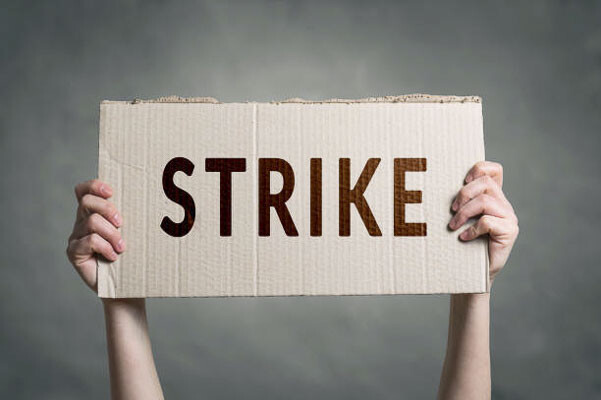
Elizabeth Hovde of the Washington Policy Center believes strikes not only damage employers, they damage workers
Elizabeth Hovde
Washington Policy Center
It’s not OK for unions to hold an employer or the public hostage to their demands. But they’re good at it. The hostage-taking behavior hurts not only employers and consumers — or in the case of public worker strikes, taxpayers — but it harms the very workers who unions say they represent.

A recent case before the U.S. Supreme Court from Washington state illustrates the problem well. When a union’s contract had expired and negotiations broke down, the union told its members to walk off the job after drivers had loaded wet concrete into their company’s delivery trucks. Wet concrete hardens easily, and the company had to do fancy footwork to offload the concrete before it destroyed the trucks. It lost money in the process.
Glacier Northwest, the Washington state cement company, sued the International Brotherhood of Teamsters for damages, and the case went to the high court after being dismissed in Washington state. In an 8-to-1 vote, justices ruled the unionized truck drivers endangered company equipment.
Indeed. That was the point.
The ruling means Glacier Northwest can pursue its lawsuit against the union in state court. The court said it was wrong to dismiss Glacier’s claims at such an early stage in proceedings, based on concern that the claims conflicted with the National Labor Relations Act, a federal law that protects union activity.
Unions know they can get better results if their actions will harm a business or public employer. It happens too often in Washington state. When public educators strike after a long summer and take away kids’ first days of school, they harm family budgets and schedules. And even though their strikes are illegal because of the public harm, teachers still get paid by taxpayers.
Hostage-taking works. That it will continue when wet cement isn’t present is why unions actually see this ruling as a win. National Public Radio explains unions are relieved that this ruling in favor of a business is narrow, generally leaving strike activity intact.
“Virtually every strike is based on timing that will hurt the employer,” Stanford Law School professor William Gould, a former chairman of the National Labor Relations Board, told NPR. There was concern that the court would rule broadly to limit strikers. “But that didn’t happen,” Gould said. The court stopped far short of limiting the ability of strikers to get away with intentionally damaging behavior.
That’s too bad. Strikes not only damage employers, they damage workers. In the case of public worker strikes, they often lower the public’s opinion of workers involved. They also cost governments money and harm service levels that taxpayers have been told they can expect — and do.
Talking to public and private employers about changes to pay or work conditions, and finding new work if the result of that effort is unsatisfactory, is the appropriate path for workers. Work is a privilege as much as it is help. It represents an agreement. And unions place workers in an awkward spot with hostage-taking actions.
Elizabeth Hovde is a policy analyst and the director of the Centers for Health Care and Worker Rights at the Washington Policy Center. She is a Clark County resident.
Also read:
- POLL: Should the county expand its social media policy to include personal accounts of employees in sensitive roles?POLL: Should the county expand its social media policy to include personal accounts of employees in sensitive roles?
- Opinion: ‘Vilifying broad swaths of Americans’Editor Ken Vance reflects on troubling posts by public defender Renee Alsept and shares a thoughtful perspective from longtime attorney Brad Andersen on ethics, discourse, and professionalism.
- Opinion: Fort Vancouver Regional Libraries levy lid liftDick Rylander shares Q&A with FVRL leadership about the proposed levy lid lift, detailing budget needs, tax impacts, and what a YES or NO vote could mean for library services.
- Letter: ‘The public has allowed this to happen’Wynn Grcich calls on Vancouver residents to support Justin Forsman and Rob Anderson in local elections and urges more civic engagement to challenge current city leadership.
- Letter: ‘I am a law-abiding citizen, who believes in the free speech of others’Jim McConnell of Vancouver shares his frustration over repeated sign thefts opposing changes to McGillivray Boulevard and defends the right to free speech in Cascade Park.










